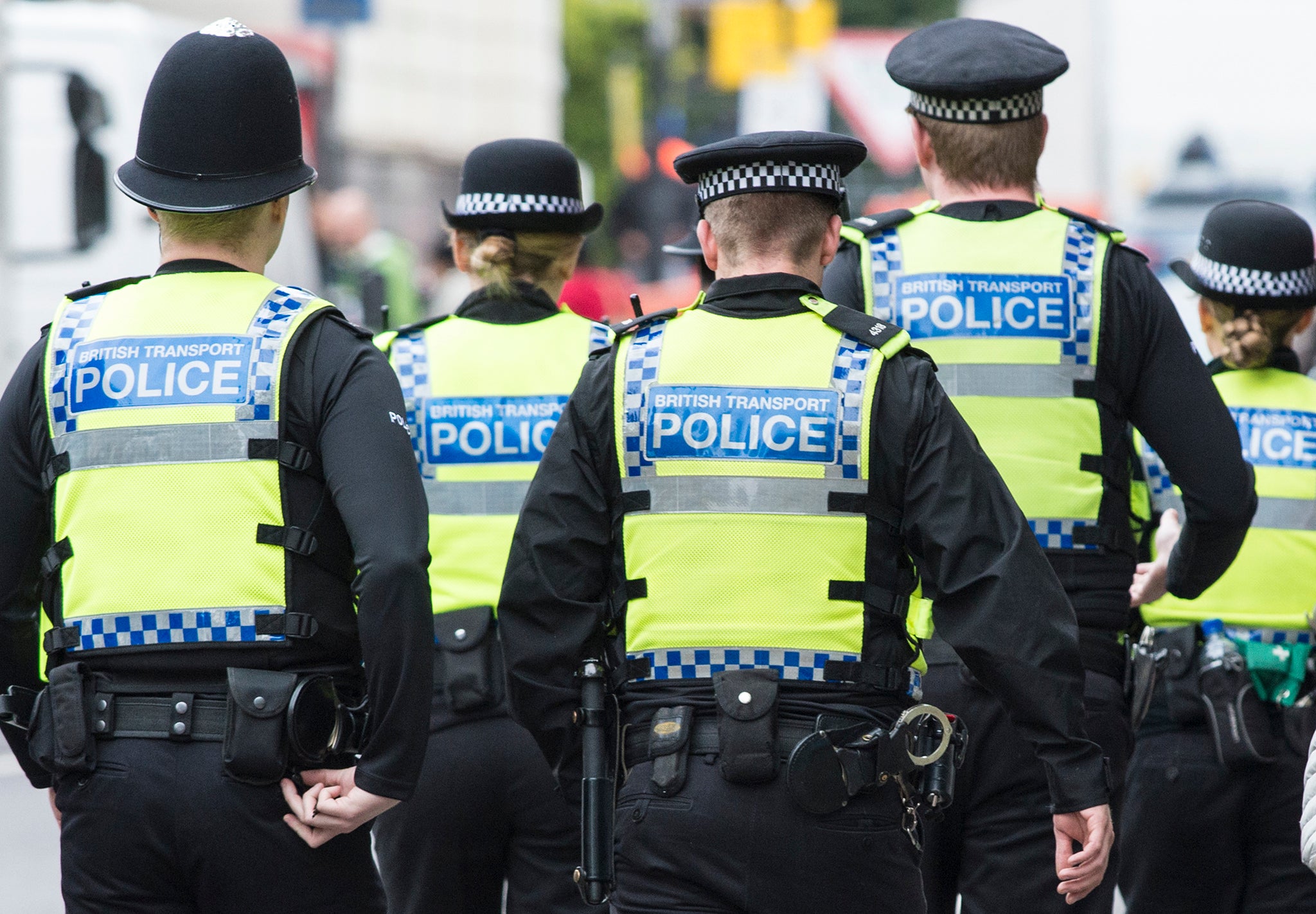Rise in number of police officers taking sick leave due to 'stressful' work
The British police force has decreased by 17,000 since 2010, with psychological sick leave rising 35%

Your support helps us to tell the story
From reproductive rights to climate change to Big Tech, The Independent is on the ground when the story is developing. Whether it's investigating the financials of Elon Musk's pro-Trump PAC or producing our latest documentary, 'The A Word', which shines a light on the American women fighting for reproductive rights, we know how important it is to parse out the facts from the messaging.
At such a critical moment in US history, we need reporters on the ground. Your donation allows us to keep sending journalists to speak to both sides of the story.
The Independent is trusted by Americans across the entire political spectrum. And unlike many other quality news outlets, we choose not to lock Americans out of our reporting and analysis with paywalls. We believe quality journalism should be available to everyone, paid for by those who can afford it.
Your support makes all the difference.The number of police officers taking sick leave for psychological reasons has increased by 35 per cent in the last five years.
Union leaders blamed the rise on increased officer workloads, brought on by "unprecedented cuts" to police numbers.
Figures obtained by BBC Radio 5 live showed individual applications for psychological sick leave rose from 4,544 in 2010-11 to 6,129 in 2014-15 - despite the overall number of officers falling 17,000 in the same period.
Long-term sick leave, defined as lasting over 28 or 29 days, has also increased 12 per cent over the same period.
The Home Office has described police work as "stressful", stating senior police chiefs must ensure their officers receive better support.
Che Donald from the Police Federation told the BBC "unprecedented cuts to police officer numbers" has increased officer workloads.
He added that manpower and resources cuts coupled with officers often working in "highly stressful fast-moving environments...can lead to the perfect storm".
Since 2010, the number of civilian support staff and community support officers has dropped over 20,400.
Policing minister Mike Penning said: "Policing, by its very nature, is a stressful and demanding job and it is the responsibility of chief officers - with help from the College of Policing - to ensure that police officers and staff are supported in their work."
These figures do not include Scottish numbers as Police Scotland did not reply to BBC 5 live's freedom of information requests.
Professor Kevin Morrell from Warwick Business School said of this sharp increase in stress-related leave: "If you are a front-line officer right now you are probably in an environment where there have been cuts in numbers, you are facing further cuts in numbers, perhaps one or more stations in your neighbourhood is at risk of closure, morale is falling, and your senior commanders are unsure what the future holds.
"Given the pace of change and this context it's likely you are frustrated that you can't carry out some tasks you would have been expecting to be able to do when you joined.
"These can add up to what psychologists call cognitive dissonance - a gap between expectations and reality that can't be closed. It's a recipe for stress, turnover and potentially worse decision-making."
Join our commenting forum
Join thought-provoking conversations, follow other Independent readers and see their replies
Comments